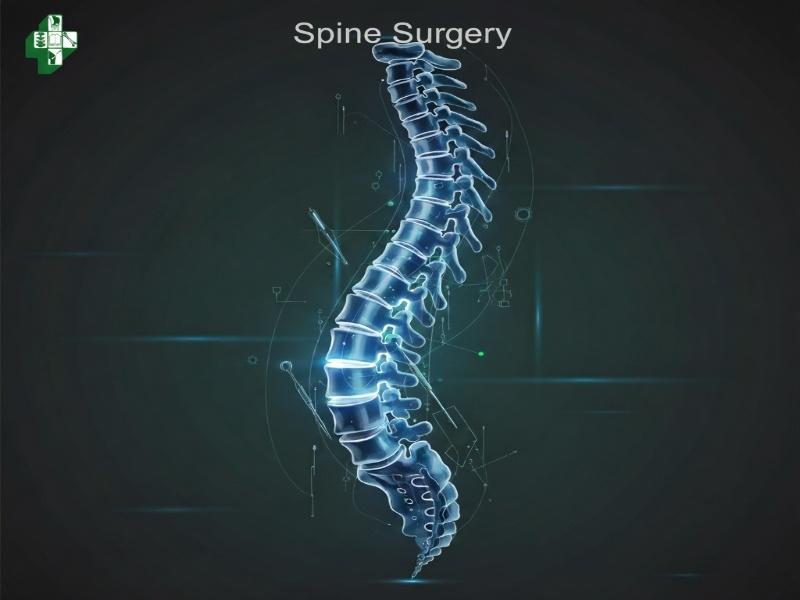Introduction
Many parents and families notice that neck or back pain often gets dismissed as stress, poor posture, or the natural effects of aging. Yet when the pain becomes persistent, it could be a sign of an underlying spine disorder. For families searching for guidance, knowing when to seek medical help is crucial. Often, consulting a trusted spine surgery hospital helps in identifying the true cause and planning appropriate treatment.
Understanding Persistent Neck and Back Pain
Occasional stiffness after a long day is common, but when pain lingers for weeks or interferes with daily activities, it should not be ignored. Persistent discomfort may indicate issues such as slipped discs, spinal stenosis, herniated discs, or even degenerative spine conditions.
Families often first notice the changes when a loved one struggles to sit, walk, or sleep comfortably. Pain that spreads down the arms or legs, or numbness and tingling, are also red flags that the spine may be under stress.
Why Families Should Pay Attention
Ignoring prolonged pain can lead to worsening conditions. A spine disorder not only limits mobility but can also impact independence and emotional well-being. For children or aging parents, early attention can prevent complications and improve outcomes.
Families often carry the responsibility of encouraging their loved ones to seek medical care. Talking about symptoms openly and reassuring them about the benefits of medical evaluation can make a significant difference.
Common Causes of Persistent Pain
When back or neck pain refuses to go away, several conditions could be the reason:
- Herniated disc: Occurs when cushioning discs slip out of place.
- Spinal stenosis: Narrowing of the spinal canal, putting pressure on nerves.
- Degenerative disc disease: Wear and tear leading to chronic pain.
- Arthritis of the spine: Joint inflammation causing stiffness and discomfort.
- Injuries: Past trauma or accidents resurfacing as chronic pain.
These conditions often require specialized care at a spine surgery hospital where experts can recommend both non-surgical and surgical approaches.
When Families Should Seek Medical Help
Recognizing when to seek professional care is vital. Warning signs include:
- Pain lasting more than 6 weeks
- Numbness, tingling, or weakness in the arms or legs
- Trouble walking or maintaining balance
- Loss of bladder or bowel control
- Night pain that disrupts sleep
If these symptoms appear, families should act promptly rather than wait for the pain to resolve on its own.
Choosing the Right Hospital for Spine Disorders
Finding the right place for diagnosis and treatment can feel overwhelming. Families often share advice with one another, and hearing from neighbours or friends can make the choice easier. While every patient is unique, certain factors can help guide families toward the best decision.
Essential factors to consider when choosing a hospital:
- Expertise of specialists
Look for hospitals where orthopedic and neurosurgeons specialize in spine care with extensive experience. - Advanced diagnostic tools
Modern imaging and minimally invasive technology allow for accurate assessment and safer treatment. - Comprehensive rehabilitation
Recovery depends on physical therapy and long-term follow-up, not just surgery. - Family-centered approach
A hospital that communicates with families, explains treatment plans, and offers emotional support makes recovery smoother. - Proven track record
Patient outcomes, testimonials, and community trust are strong indicators of quality care.
Considering these points ensures families feel confident in their choice of spine surgery hospital while giving loved ones the best chance at recovery.
Supporting a Loved One Through the Journey
Families play a key role in helping someone cope with spine disorders. Encouragement during consultations, reminders for therapy exercises, and emotional reassurance during recovery all make the journey less daunting.
Open communication helps reduce fear. Many patients feel anxious about the possibility of surgery, but understanding that modern techniques are safer and less invasive helps ease worries. With the right guidance from a trusted spine surgery hospital, recovery can often be quicker and more successful than expected.
Conclusion
Persistent neck or back pain is more than just discomfort. For families, recognizing when it may indicate a spine disorder is a crucial step in protecting the health and independence of a loved one. Seeking guidance early ensures the right treatment, whether through lifestyle changes, therapy, or medical intervention.
At Soundarapandian Bone and Joint Hospital, we are committed to providing world-class healthcare with the warmth and compassion of a family-run institution. Guided by a tradition of care, our highly skilled Orthopaedic surgeons and our dedicated team work together to ensure that every patient receives personalised treatment. We combine the latest in cutting-edge technology with a deep sense of empathy and ethics, striving for excellence in orthopaedics while fostering a welcoming, supportive environment for all.
FAQs About Persistent Neck and Back Pain
What symptoms suggest that neck or back pain could be a spine disorder?
If pain lasts more than a few weeks, spreads to the arms or legs, or is associated with weakness, tingling, or bladder issues, it could be a spine disorder.
Can lifestyle changes help with chronic neck or back pain?
Yes, posture correction, exercise, and weight management can help, but persistent pain still requires medical evaluation.
How do families know if surgery is necessary?
Surgery is usually considered when non-surgical options fail or when severe symptoms affect daily life. A consultation at a spine surgery hospital can help determine the right path.
Is spine surgery safe for older adults?
With modern techniques and proper preparation, spine surgery can be safe for seniors, though individual health conditions must always be evaluated.

